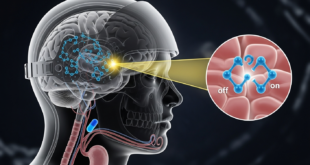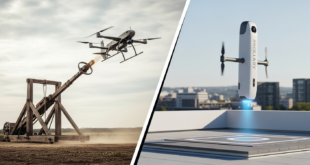Introduction: From Importer to Exporter—A Paradigm Shift India, the world’s fastest-growing major economy, is on track to become the third-largest economy within the next five years, a testament to its expanding global stature. However, economic growth alone is insufficient for a nation with soaring ambitions; it must also develop a …
Read More »DARPA’s AWARE Program: A Leap Forward with Light Activated Drugs in Warfighter Alertness Post-Sleep Deprivation
DARPA’s AWARE Program: Light-Activated Drugs to Keep Warfighters Alert Without the Crash DARPA’s AWARE initiative pioneers photopharmacology—using near-infrared light to activate smart drugs that boost alertness on demand, redefining cognitive performance in defense and beyond. We’ve all experienced those grueling nights – facing a tight deadline, pulling an all-nighter, and …
Read More »Smart Aquaculture: Tackling the Global Challenge of Sustainable Fish Farming
Smart Aquaculture: AI, IoT, and Biotechnology Are Powering the Next Revolution in Sustainable Seafood AI-driven feeding, IoT sensors, and biotech breakthroughs are transforming aquaculture into a smarter, cleaner, and more sustainable system to feed the world’s future population. Introduction: The Rising Tide of Aquaculture Demand As the world’s population continues …
Read More »Military Lighting Market Outlook: Trends, Technologies, and Future Growth
https://youtu.be/rg81POo_gTg Military Lighting 2040: The Silent Force Multiplier of Future Warfare From stealth operations to AI-driven networks, advanced lighting technologies are reshaping the battlefield into a domain where light itself becomes a weapon of dominance. Introduction Military lighting is far more than a utility—it is a mission enabler. These specialized …
Read More »Revolutionizing VTOL Warfare: DARPA’s ANCILLARY Program and the Future of Infrastructure-Free UAS
Revolutionizing VTOL Warfare: DARPA’s ANCILLARY Program and the Future of Infrastructure-Free UAS DARPA’s ANCILLARY program is redefining drone warfare with VTOL, hybrid-electric propulsion, and infrastructure-free operations — a game-changer for naval and expeditionary missions. The U.S. Defense Advanced Research Projects Agency (DARPA) is accelerating its vision for next-generation vertical takeoff …
Read More »China’s Pioneering ‘Brain-on-Chip’ Technology: Merging Human Brain Cells with Robotics
In a remarkable scientific achievement, researchers from Tianjin University and the Southern University of Science and Technology have successfully developed a revolutionary ‘brain-on-chip’ system that integrates lab-grown human brain tissue with computer chips to control robotic functions. This cutting-edge technology represents a significant advancement in the field of brain-computer interfaces …
Read More »Future Submarine Concepts and technologies: Diving into Tomorrow’s Undersea Warfare
Submarines of the Future: From Quantum Threats to AI-Driven Undersea Dominance Silent giants are transforming into AI-powered, quantum-resistant platforms that will redefine naval warfare in the decades ahead. Introduction The future of undersea warfare is being shaped by transformative advances in artificial intelligence, neurotechnology, quantum communication, and biomimicry. As maritime …
Read More »China’s Top 30 Science & Tech Challenges: From Digital Humans to Deep-Sea Power Stations
As global scientific competition intensifies, China has unveiled an ambitious roadmap of 30 frontier science and technology challenges. These challenges span everything from fundamental research to next-generation innovations that could reshape industries and global geopolitics. China has identified 30 critical research areas that dominated scientific, engineering, and industrial discussions in …
Read More »The Future of Air-to-Air Refueling: Advancements in Automation, Drones, and Beyond
Air-to-Air Refueling 2040: The Backbone of Future Aerial DominanceAI-driven tankers, stealth designs, and drone-to-drone refueling are transforming airpower into a seamless global ecosystem. Air-to-air refueling (AAR) remains a cornerstone of modern military aviation, enabling aircraft to extend their operational range, endurance, and mission flexibility. As global conflicts evolve and airspaces …
Read More »Next-Gen Propulsion Systems for Small and Micro UAVs: Powering the Future of Aerial Innovation
Next-Gen Propulsion Systems for Small and Micro UAVs: Powering the Future of Aerial Innovation From hydrogen fuel cells to AI-driven tri-source hybrids, advanced propulsion technologies are redefining endurance, stealth, and mission flexibility for the next generation of UAVs. The rapid evolution of small unmanned aerial vehicles (SUAVs) and micro air …
Read More » International Defense Security & Technology Your trusted Source for News, Research and Analysis
International Defense Security & Technology Your trusted Source for News, Research and Analysis







